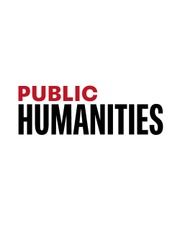professor of environmental history, Trinity College Dublin: oceans past, marine environmental history, uses of the past




Reposted by Poul Holm
www.st-andrews.ac.uk/history/ssne
🗃 📚 #17thC #Skystorians #History #Genealogy
Open to updates

www.cambridge.org/core/journal...

Reposted by Poul Holm, Douglas M. Peers, Colin M. Coates

usask.csod.com/ux/ats/caree....
Reposted by David Wilson, Poul Holm

Reposted by Poul Holm, Simone M. Müller

Reposted by Poul Holm

It marks the historic border between the Kingdom of Kent and the South Saxons (or Sussex as they like to call themselves now). It is still the border to this day.


Reposted by Poul Holm
www.h-net.org/reviews/show...
Reposted by Poul Holm

Reposted by Poul Holm

onlinelibrary.wiley.com/doi/10.1111/...


